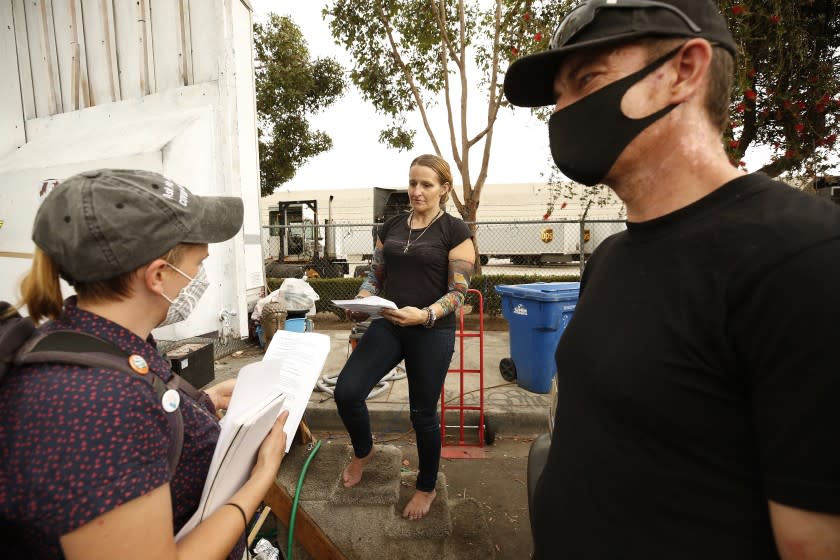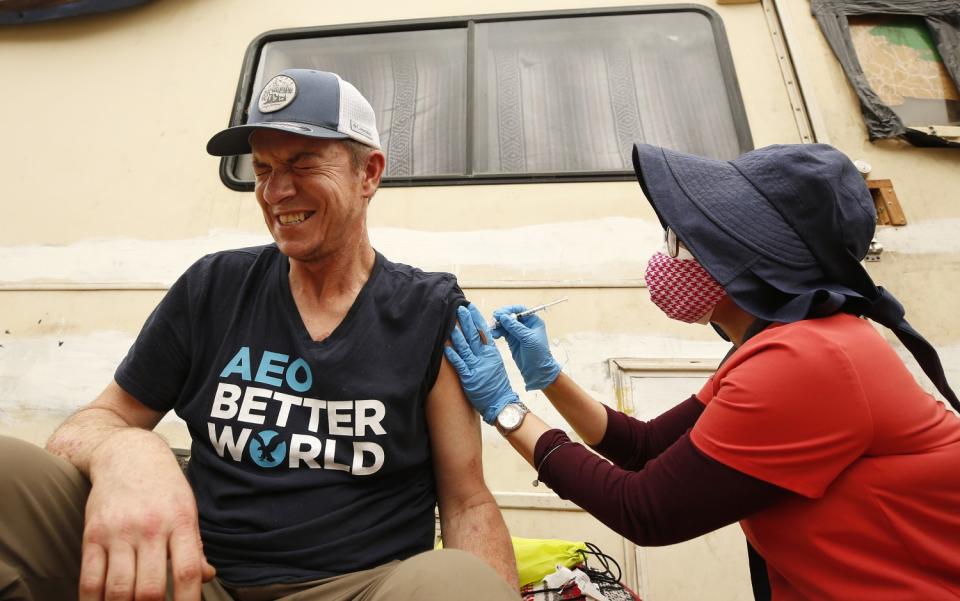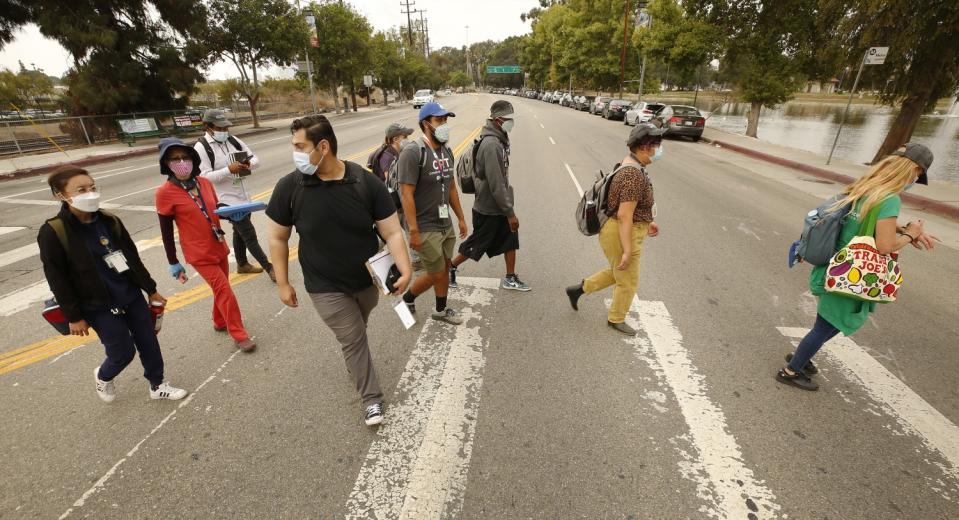What sways homeless people to get COVID-19 shots? It could be other homeless people

It was a familiar voice that coaxed Kimberly Conti to step out, barefoot, from the back of the hulking former bookmobile parked in an industrial corner of Lincoln Heights.
“Hey, what’s up?”
It was Zack Gustine, who used to park his RV on this same block. “Have you gotten vaccinated already?” he asked her. “Do you want to?”
Conti shrugged. “I don’t really care,” she said.
“That’s how I was too,” Gustine replied. But just a few hours earlier, the 42-year-old had gotten the Johnson & Johnson shot to protect himself against COVID-19. And now he was a "peer ambassador," talking to others about the vaccine.
“We bring it right to you," he assured her. "It’s super easy.”

Soon Conti had gotten her shot too — and was joining Gustine and an L.A. County Department of Health Services team as another newly minted ambassador, talking to her neighbors in tents and RVs on the next block.
It’s a simple and intuitive idea: People tend to listen more to those they know.
So in L.A. County, health officials are enlisting people living in tents, RVs and makeshift shelters to help get unhoused people vaccinated against COVID-19. The fledgling effort, which launched in August, is being funded as a study through the David Geffen School of Medicine at UCLA.
"A lot of people who are experiencing homelessness are not going to look at me or my healthcare colleagues as people who can speak to their experiences," said Chelsea L. Shover, a UCLA School of Medicine assistant professor and principal investigator for the study. "It means more to have someone they’ve lived with and spent time with say, ‘I got mine, and it wasn’t a big deal.’”

Dozens of people have become peer ambassadors through the demonstration project, which compensates them to do the work for up to eight hours in total, providing $25 gift cards to stores such as Target or Ralphs for each hour worked. To be eligible, they must have a "lived experience" of homelessness; most are currently unhoused.
They work side by side with L.A. County Department of Health Services workers, sharing their personal experiences with the vaccine. The teams also hand out snacks, water and other critical supplies, including naloxone kits to treat opioid overdoses. If the people they reach on the streets decide to get vaccinated, a medical team is on hand to provide the shots.
"Peers are able to communicate with their peers and build trust at an exponentially quicker and easier rate than we can," said José Mata, a senior program manager with the county Housing for Health COVID Response Team. "We've seen peers convince people who have told us no — repeatedly."
In one instance, Mata recalled, his team asked a group of men hanging out in the Lawndale area whether they were vaccinated. The men initially said yes — and his team moved on. He came back shortly to find two of the same men getting their shots, after they had talked to a peer ambassador.

Conti said she was more open to getting vaccinated because a friend was reaching out. "Usually when somebody comes up and talks to me it's not a good thing — if it's not somebody I know," Conti said.
In L.A. County, homeless people have been less likely to get vaccinated against COVID-19 than the general population. As of late September, public health officials estimated that 56.7% of people experiencing homelessness across the county were at least partially vaccinated, compared with nearly 78% of the broader population. More than 200 homeless people have died of COVID-19 across the county, according to the L.A. County Department of Public Health.
Gustine said he hadn’t bothered getting the vaccine before because he wasn't especially worried about catching the coronavirus. But when the Department of Health Services team showed up outside his RV, offering to bring him the vaccine, he decided it was “kind of a no-brainer.”

 Yahoo Autos
Yahoo Autos